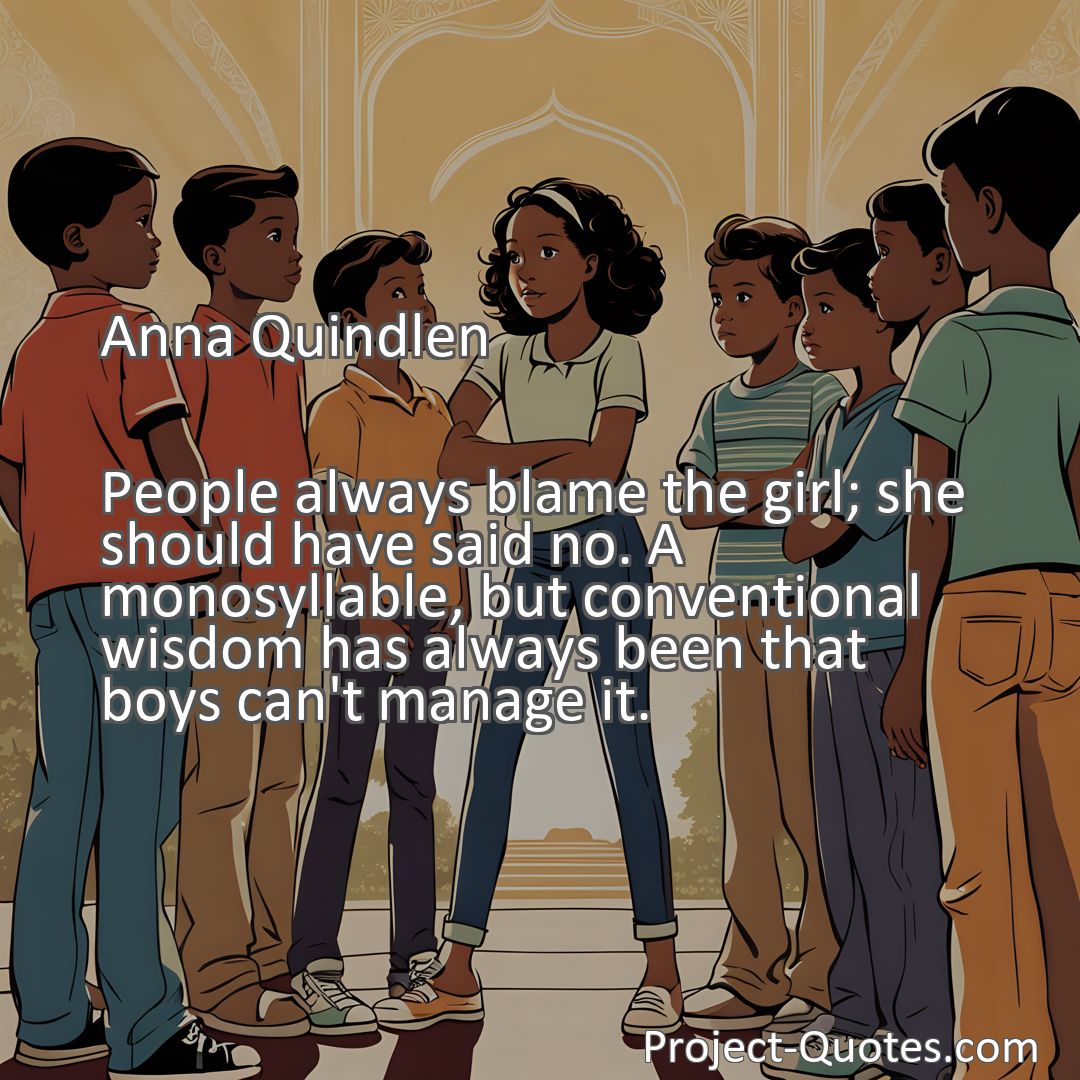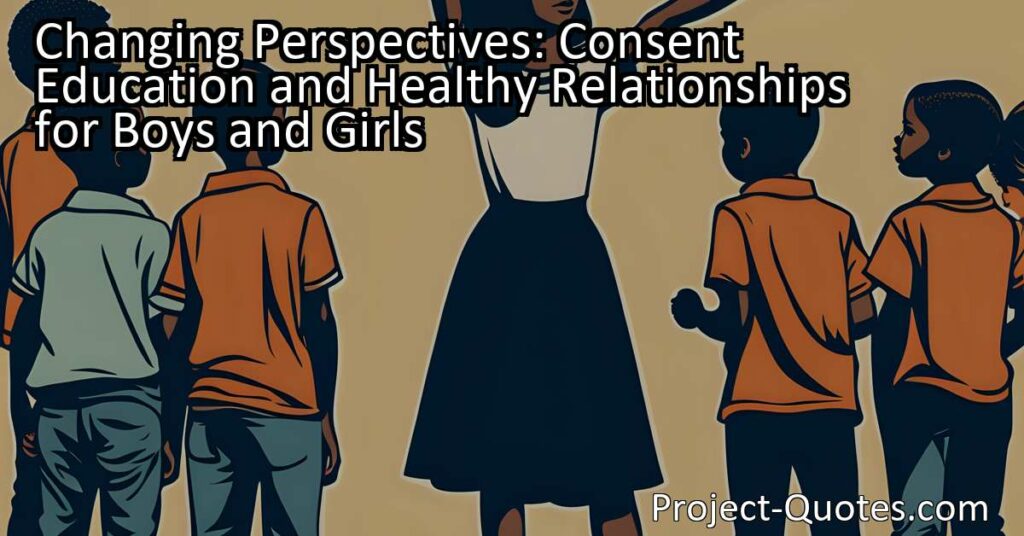People always blame the girl; she should have said no. A monosyllable, but conventional wisdom has always been that boys can’t manage it.
Anna Quindlen
“Changing Perspectives: Consent Education and Healthy Relationships for Boys and Girls” emphasizes the importance of shifting the blame from girls to boys when it comes to consent. The content highlights the need to teach both boys and girls about establishing boundaries and seeking enthusiastic consent. By promoting open communication, respect, and empathy, we can create a culture that prioritizes consent, equality, and the well-being of all individuals.
Table of Contents
- 1 People always blame the girl; she should have said no. A monosyllable, but conventional wisdom has always been that boys can’t manage it.
- 2 Anna Quindlen
- 3 Meaning of Quote – People always blame the girl; she should have said no. A monosyllable, but conventional wisdom has always been that boys can’t manage it.
- 4 Freely Shareable Quote Image
- 5 Related
Meaning of Quote – People always blame the girl; she should have said no. A monosyllable, but conventional wisdom has always been that boys can’t manage it.
In society, there has been a longstanding tendency to assign blame to girls and women in situations where they are subject to unwanted advances or encounters. It is often thought that if a girl finds herself in such a situation, she should have simply said “no.” This idea of placing the blame on the girl and excusing the actions of boys is not only unfair but also perpetuates harmful gender stereotypes.
When it comes to consent, the responsibility should not solely rest on the shoulders of girls. The notion that boys are incapable of managing a simple monosyllable like “no” reflects a troubling double standard. It sends the message that boys are unable to control their desires or respect the boundaries of others. This perspective not only underestimates boys but also reinforces harmful gender norms that promote toxic masculinity.
Teaching boys to respect boundaries and seek enthusiastic consent is crucial in creating a culture of consent. It is unfair to hold girls accountable for the actions or behavior of boys, as it places an unnecessary burden on them. In fact, girls should never be blamed or questioned for not saying “no” when put in uncomfortable or potentially dangerous situations. It is essential to shift the focus from victim-blaming to educating both boys and girls about consent and healthy relationships.
Consent is an ongoing process that requires open communication, respect, and active participation from all parties involved. It should never be assumed that silence or the absence of a clear “no” implies consent. Instead of placing the burden on girls to express their boundaries, boys should be taught to navigate relationships and situations with empathy and respect.
It is important to recognize and challenge the societal norms that perpetuate the belief that girls should always say “no” to avoid blame or responsibility. This notion not only takes away agency from girls but also reinforces harmful stereotypes about their role in relationships and society as a whole. By holding girls accountable for situations they did not seek or invite, we are effectively silencing their voices and perpetuating a culture of victim-blaming.
Furthermore, the focus on girls’ responsibility to say “no” disregards the fact that boys also have the right to establish and communicate their boundaries. Boys should be encouraged to express their discomfort or lack of consent just as much as girls are expected to. This shift in perspective empowers boys to take ownership of their own bodies and respect the autonomy and boundaries of others.
Promoting a culture of consent requires dismantling the idea that boys are incapable of managing a simple monosyllable. Boys are just as capable of understanding and respecting boundaries as girls are. Assuming otherwise is not only unfair but also reinforces harmful gender stereotypes that limit the emotional growth and well-being of boys.
It is crucial to emphasize the importance of open communication and mutual respect in all relationships, regardless of gender. Teaching consent as an essential aspect of building healthy relationships allows individuals to navigate their interactions with empathy, understanding, and respect for one another’s boundaries.
In conclusion, blaming girls for not saying “no” and excusing the behavior of boys is an outdated and unfair concept. It is important to challenge these notions and instead focus on educating both boys and girls about consent and healthy relationships. Promoting open communication, mutual respect, and empathy will contribute to creating a culture that is centered around consent, equality, and the collective well-being of all individuals.
I hope this quote inspired image brings you hope and peace. Share it with someone who needs it today!


